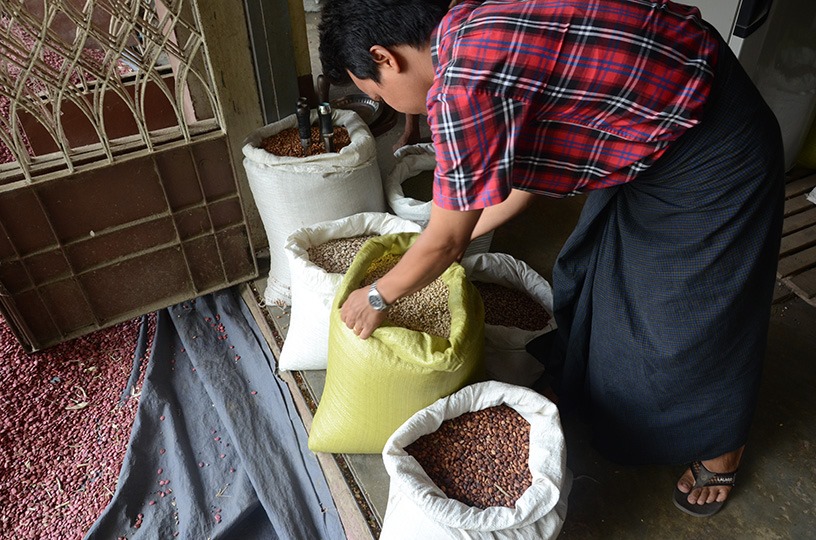By Nyein Nyein
The price of mung bean has risen a bit during the post-Thingyan period, but the market is seen cooling due to the coronavirus impacts, said Secretary U Min Ko Oo of Myanmar Pulses, Beans and Sesame Seeds Merchant Association (MPBSSMA).
Prior to Thingyan, mung beans were priced K970,000 per tonne. At present, it increased to K985,000 per tonne in the domestic market.
“The market is cooling down in recent days”, he said.
India has earlier extended the period for import quota of 250,000 tonnes of mung beans by April-end and made a further extension to 15 May, due to coronavirus impacts.
Myanmar assures adequate supplies of mung bean for India’s market, yet the coronavirus consequences slow the trade flow, the association stated.
For the current fiscal, India has increased the quota limit from 150,000 to 400,000 tonnes to reach the market’s demand, according to a trade notice released by the Directorate General of Foreign Trade under India’s Ministry of Commerce and Industry on 12 December 2019.
India has earlier stated that the further increased quota of 250,000 tonnes has to arrive at India’s port by 31 March 2020. Due to the coronavirus infection impacts, they made the extension two times.
At present, more than 150,000 tonnes of mung beans have been shipped, according to the association.
India experienced a low yield of mung beans due to erratic weather last year. Under the provincial government’s approval, more mung beans are purchased beyond the previous quota limit, driving up the mung bean price up to above K1.3 million per tonne.
Mung bean is priced around K960,000-970,000 per tonne during the post-Thingyan period.
Moreover, India’s Commerce Department has issued an announcement on 17 March 2020 to import 400,000 tonnes of mung beans for the 2020-2021FY as per the amended 2015-2020 Foreign Trade Policy of the Central Government.
Myanmar is the main supplier of mung beans to India. Concerning other types of beans, Myanmar has to compete against Australian and African markets, according to Myanmar Pulses, Beans and Sesame Seeds Merchants Association. (Translated by Ei Myat Mon)


